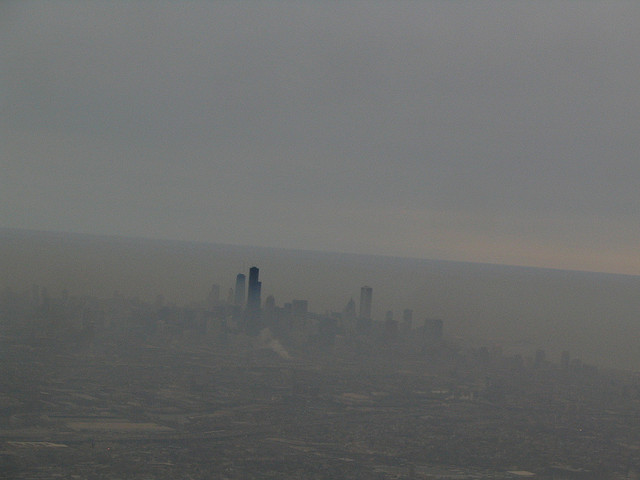Fascinating Study Shows Chicago Violence Goes Up When Pollution Does
By Mae Rice in News on Dec 21, 2015 9:49PM
Researchers have found a link between air pollution and violent crime in Chicago.
On days when a given neighborhood was downwind from a major freeway, and exposed to heightened tailpipe pollution, the researchers—Evan Herrnstadt and Erich Muehlegger—found that violent crime in that neighborhood rose 2.2 percent. Property crimes were uncorrelated with exhaust levels. Their findings were published in a paper published last week by the National Bureau of Economic Research.
These conclusions are based on twelve years of crime data from the Chicago Police Department. The dataset encompassed more than 2 million “serious” crimes, each tagged with location data; the researchers paired this information with meteorological data on local wind patterns, to find out when an area was downwind or upwind from the freeway.
The researchers did not see property crime rates effected by pollution levels. They also said it's unclear which pollutants, such as carbon monoxide or nitrogen oxide, were more closely correlated with violent crime rates.
Correlation is not necessarily causation. However, the link between pollution and violence could be causal, and if so, it would provide a powerful new argument for minimizing pollution. In the paper, the authors put the cost of pollution-related crime at between $100 million and $200 million per year.
A writeup of the study in the Washington Post explains the advantages of the study’s design:
[It] gets around a large problem that occurs if you simply try to correlate pollution with the occurrence of crime in a given location — namely, there are many confounding factors such as income, Herrnstadt explains. By contrast, the study design of comparing neighborhoods with themselves, on days when they are and aren’t downwind, “allows us to drill down and really identify this causal effect of pollution on crime,” he says.
